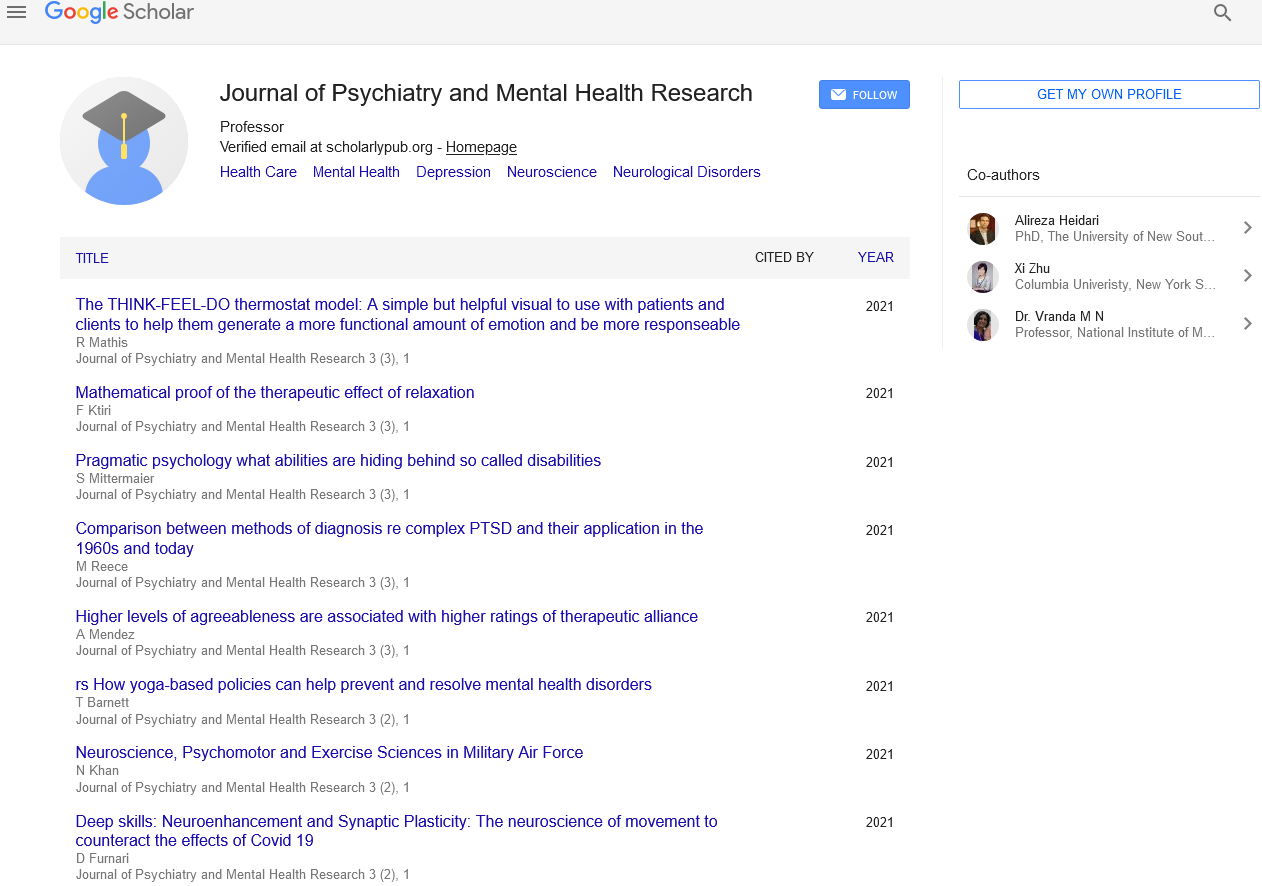
Sign up for email alert when new content gets added: Sign up
Abstract
Market Analysis for World Psychiatrists & Psychologists
Author(s): Robin CampbellPsychology and market research have a lot in common. In fact, many psychology professionals choose the realm of market research as a career path. Both disciplines seek to understand more about people— and approach that task through research. While the objectives and action taken from the results may vary, both use similar methodologies and processes to achieve their goals. Rather than thinking about these two disciplines separately, we want to learn about the basics of psychology and how to approach market research with psychological thinking in order to build a stronger foundation for research findings. Psychology has been around since the late 1800’s when it got its start through the studies of Wilhelm Wundt. Today it’s the study of the human mind as it relates to our emotions, attitudes, thought processes, and ultimately our behaviors. There are a variety of specialty areas including consumer behavior, social, clinical, forensic, and so on. Within each specialty many tools are utilized; however, research is one of the most crucial ones. Starting with the scientific method like most “ologies,” psychology approaches a question by making observations, gathering data, forming theories, testing those theories, and interpreting results. Some of the most commonly used research methods include. It’s sometimes easy to forget that what we do as market researchers has so much to do with the behavior of consumers before we even begin the research. That’s why when it comes to applying psychological thinking to our studies, we have to begin to understand its impact before we even start. The field of psychology and market research work in parallel with one another. Brand development, packaging designs, pricing strategies, and other areas all have psychological influences. While market research seeks to understand the behaviors of consumers to the benefit of our goods and services, using lessons from psychology to further that understanding or even change behaviors is a powerful tool. Growth in the historic period resulted from government support for mental health reforms, emerging markets, and advance technology development. Factors that negatively affected growth in the historic period were social stigma associated with mental illness and limited healthcare access. Going forward, the private health insurance reforms, economic growth and social acceptance will drive the market. Factors that could hinder the growth of the psychiatrists market in the future include high cost associated with the drugs and medical devices for the treatment and shortage of psychiatric professionals. Limited access was one of the key restraints on the psychiatrists market during the historic period. Healthcare access was relatively poor in most developing countries compared to the developed nations. For instance, in 2016, India ranked 145th among 195 countries in terms of quality and accessibility of healthcare facilities. Globally, the disease burden is significantly higher in lowand middle-income countries. The public sector is a major employer of psychiatrists. Psychiatrists working in the public sector are so busy coping with acute crises that they are often unable to provide prevention and early intervention treatments or deal with the high prevalence disorders. The low access to practitioners hurt market growth in many developing nations. The new studies associated with psychiatric genetics are discovering complex disorders related to mental health. Psychiatric genetics studies the role of genetics in the causes of mental health and provides knowledge to improve treatment methods. In 2019, scientists discovered causes related to anorexia, an eating disorder. The researchers found that the problems related to this disorder were driven by metabolism. The researchers compared nearly 17,000 anorexia symptomatic people’s DNA with more than 55,000 healthy controls. The study revealed eight genes that linked anorexia to anxiety, depression and obsessive compulsive disorder, all of which was expected. Ultimately, these genetic discoveries will provide clues to the major mental disorders. Mobile and connected technologies are being implemented by psychiatric cares to assist in diagnosing and treating mental illness. Some developments such as the evolution of electronic medical records to document, communicate, and support clinical decision-making, are quickly becoming commonplace. These technologies offer real-time visibility of patient health through active and passive data collection. New e-tools can also monitor patients’ conditions such as behavioral patterns, and physiological sensing. It enables psychiatric care providers to create novel diagnostic tests for psychiatry. The top opportunities in the global psychiatrists market will arise in the psychiatric services for mood (anxiety and depression) disorders segment, which will gain $19.2 billion and the psychiatrists market size will gain the most in the USA at $19.1 billion.




